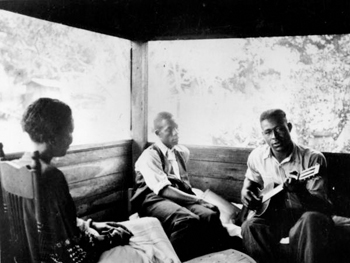- Instructor: Zachary Cofran
- Instructor: Ryan Rybka

This course is an introduction to major themes in cultural anthropology. We will examine the concepts, methods, and theories anthropologists employ to understand the unity and diversity of human experiences across different regional contexts, with an emphasis on structures of inequality. Throughout the course, students will develop critical tools for analyzing the processes of shared meaning and ways of living that anthropologists broadly refer to as “culture,” including how social distinctions are generated, sustained, contested, and transformed. Over the course of the semester, we will ask: What does it mean to be human? What are the possibilities and limits of understanding human differences in terms of ‘culture’? Why are the world’s resources and wealth so unequally distributed, and how do ordinary people navigate these inequalities in their everyday lives? And what can observing “other” ways of living across the world tell us about “ourselves” and how we are connected (and disconnected) within our planetary conditions today?
- Instructor: China Sajadian

This course is an introduction to major themes in cultural anthropology. We will examine the concepts, methods, and theories anthropologists employ to understand the unity and diversity of human experiences across different regional contexts, with an emphasis on structures of inequality. Throughout the course, students will develop critical tools for analyzing the processes of shared meaning and ways of living that anthropologists broadly refer to as “culture,” including how social distinctions are generated, sustained, contested, and transformed. Over the course of the semester, we will ask: What does it mean to be human? What are the possibilities and limits of understanding human differences in terms of ‘culture’? Why are the world’s resources and wealth so unequally distributed, and how do ordinary people navigate these inequalities in their everyday lives? And what can observing “other” ways of living across the world tell us about “ourselves” and how we are connected (and disconnected) within our planetary conditions today?
- Instructor: China Sajadian